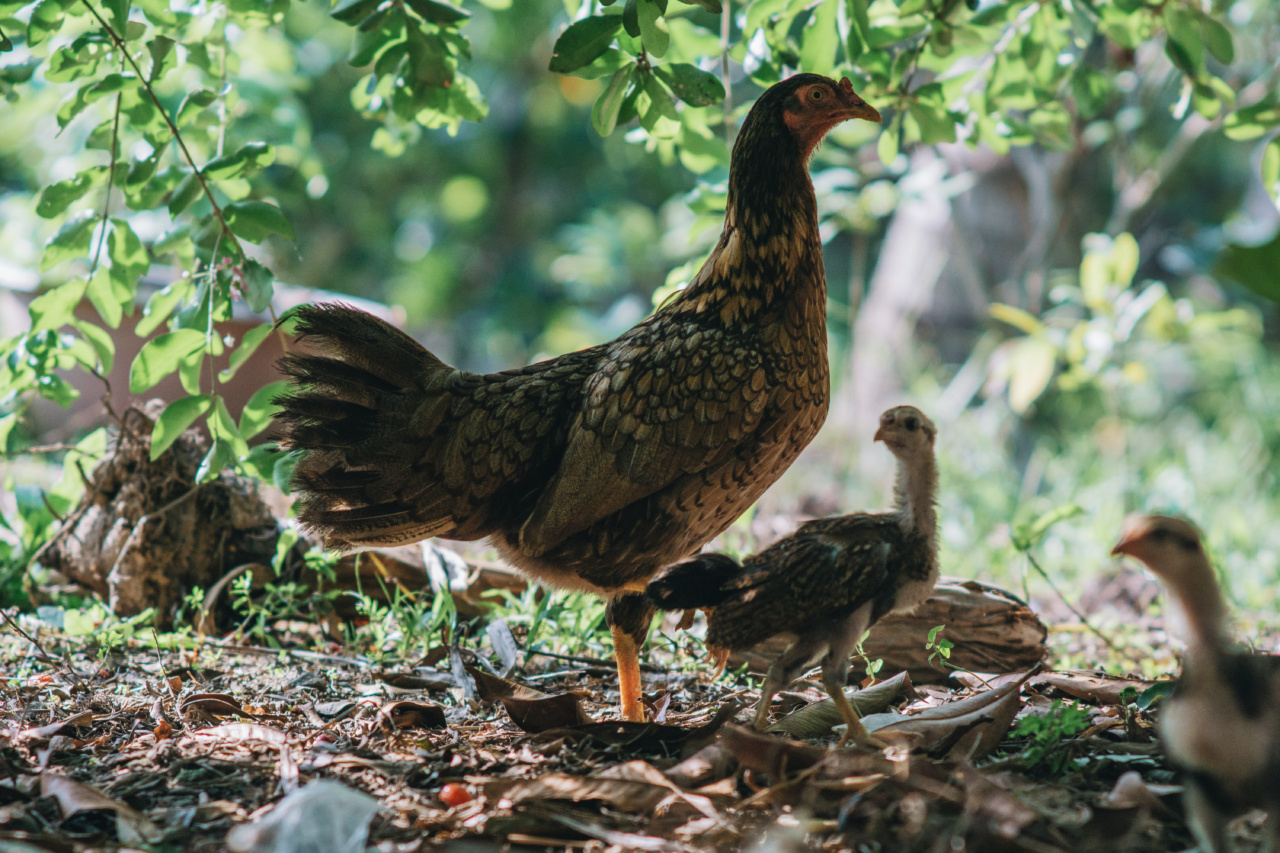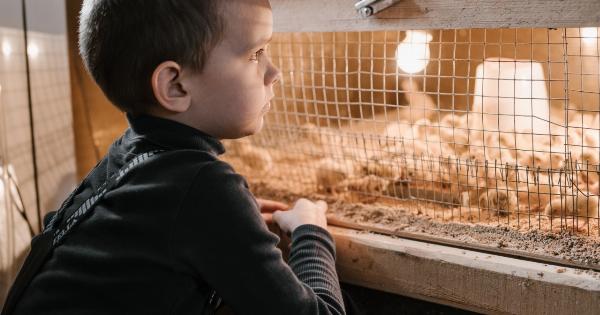Gastroenteritis is a common condition that affects chickens of all ages and breeds. It is an inflammation of the gastrointestinal tract and can be caused by a variety of factors including viral, bacterial, or parasitic infections.
Recognizing the symptoms of gastroenteritis in chickens is important as early intervention can help prevent the spread of the disease and minimize its impact on the flock.
Common Symptoms of Gastroenteritis in Chickens
1. Diarrhea: One of the most common signs of gastroenteritis in chickens is loose or watery droppings. Chickens affected by gastroenteritis may also have droppings with abnormal colors or blood streaks.
2. Decreased Appetite: Gastroenteritis can cause chickens to lose their appetite. Affected birds may appear disinterested in food and have reduced feed intake.
3. Dehydration: Diarrhea caused by gastroenteritis can lead to dehydration in chickens. Dehydrated birds may exhibit symptoms such as sunken eyes, lethargy, dry mucus membranes, and decreased mobility.
4. Weight Loss: Chickens suffering from gastroenteritis may experience weight loss due to reduced feed intake and the body’s inability to absorb nutrients properly.
5. Lethargy: Affected chickens may appear lethargic, weak, and inactive. They may spend more time resting or lying down rather than engaging in normal activities.
6. Abdominal Pain: Gastroenteritis can cause abdominal discomfort in chickens. Birds may exhibit signs of pain such as hunched posture, reluctance to move, or vocalization when touched.
7. Emaciation: In severe cases, gastroenteritis can cause severe weight loss and emaciation in chickens. This can be a life-threatening condition if left untreated.
8. Reduced Egg Production: Gastroenteritis can impact the reproductive system of laying hens, leading to a decrease in egg production or even temporary cessation of laying.
9. Poor Feather Quality: Chickens suffering from gastroenteritis may have poor feather quality. Feathers may appear dull, dirty, or ruffled due to the bird’s compromised health.
10. Respiratory Symptoms: In some cases, chickens with gastroenteritis may also exhibit respiratory symptoms such as coughing, sneezing, or nasal discharge.
Causes of Gastroenteritis in Chickens
Several factors can contribute to the development of gastroenteritis in chickens:.
1. Viral Infections: Viruses such as avian reovirus and infectious bronchitis virus can cause gastroenteritis in chickens.
2. Bacterial Infections: Bacteria such as Salmonella and Escherichia coli (E. coli) can infect the gastrointestinal tract of chickens and trigger gastroenteritis.
3. Parasitic Infections: Parasites such as coccidia and worms can infest the digestive system of chickens and lead to gastroenteritis.
4. Poor Sanitation: Dirty and unhygienic living conditions can contribute to the spread of bacteria and parasites, increasing the risk of gastroenteritis in chickens.
5. Stress: Stressful conditions such as overcrowding, extreme temperatures, or abrupt environmental changes can weaken chickens’ immune systems and make them more susceptible to gastroenteritis.
6. Contaminated Feed or Water: Consumption of contaminated feed or water can introduce pathogens into the chicken’s digestive system, leading to gastroenteritis.
Diagnosis and Treatment of Gastroenteritis in Chickens
If you suspect that your chickens have gastroenteritis, it is essential to consult a veterinarian for a proper diagnosis and treatment plan.
The veterinarian may perform a physical examination, collect fecal samples for laboratory analysis, and conduct additional tests to identify the specific causative agent.
The treatment of gastroenteritis in chickens depends on the underlying cause and severity of the condition. It may include:.
1. Administering Antibiotics: In bacterial infections, appropriate antibiotics may be prescribed to combat the specific bacteria causing gastroenteritis.
2. Supporting Fluid and Electrolyte Balance: Chickens with gastroenteritis often become dehydrated, and intravenous or oral fluid therapy may be necessary to restore hydration and electrolyte balance.
3. Maintaining Warm and Clean Environment: Providing warm and clean living conditions can help reduce stress and promote faster recovery in affected chickens.
4. Deworming and Parasite Control: If parasites are identified as the cause of gastroenteritis, deworming medications or other appropriate treatments may be administered to eliminate the infestation.
5. Adjusting Feed: Sometimes, modifying the chicken’s diet by providing easily digestible or medicated feeds can aid in recovery and help prevent further irritation of the gastrointestinal tract.
6. Biosecurity Measures: Implementing biosecurity measures such as quarantine procedures, disinfection protocols, and strict hygiene practices can help prevent the spread of gastroenteritis among chickens.
Preventing Gastroenteritis in Chickens
While gastroenteritis can be challenging to prevent entirely, there are several steps you can take to minimize its occurrence:.
1. Maintain Clean Living Conditions: Regularly clean and disinfect the chicken coop, nesting boxes, and waterers to reduce the risk of bacterial and parasitic infections.
2. Practice Biosecurity: Limit exposure to external sources of infection by implementing quarantine procedures for new birds, restricting visitors to the flock, and maintaining strict hygiene practices.
3. Provide Balanced Nutrition: Ensure that your chickens receive a well-balanced diet that meets their nutritional requirements. Proper nutrition helps boost the immune system and reduces the risk of diseases.
4. Prevent Overcrowding: Avoid overcrowding the chicken coop as it can lead to stress and increase the likelihood of disease transmission.
5. Monitor Water Quality: Regularly check the quality of drinking water provided to chickens, ensuring it is clean and free from contaminants.
6. Vaccination Programs: Consult your veterinarian to determine if vaccination against specific viral diseases is necessary to protect your flock from gastroenteritis.
Conclusion
Gastroenteritis in chickens can be a significant concern for poultry owners. Recognizing the symptoms early on and seeking veterinary care is crucial for prompt diagnosis and appropriate treatment.
By practicing good biosecurity measures, maintaining clean living conditions, and providing balanced nutrition, you can significantly reduce the risk of gastroenteritis in your flock and promote their overall well-being.






























